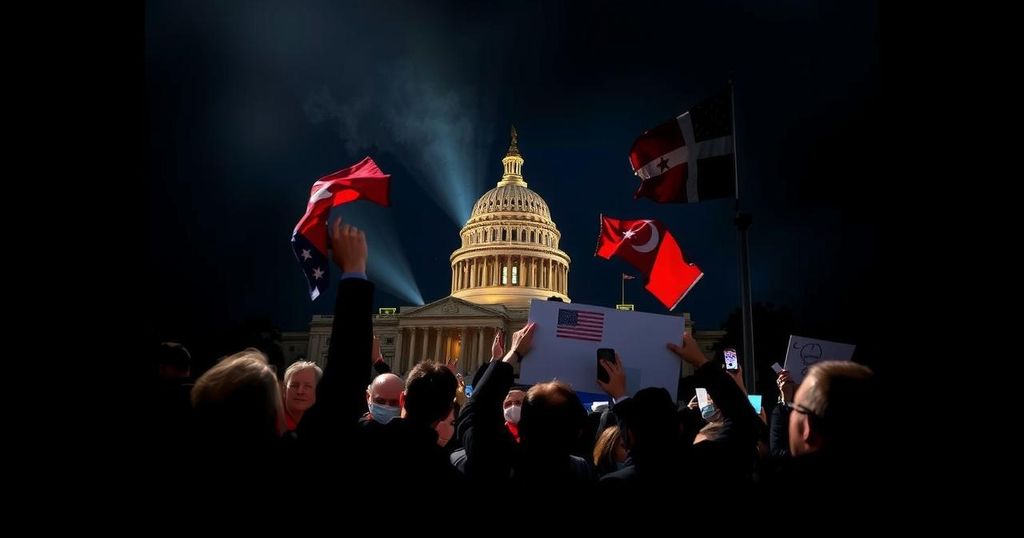Georgia’s Political Landscape in Turmoil After Contested Election Results

Georgia’s recent elections have resulted in opposing claims of victory between the ruling Georgian Dream party and the opposition amidst growing tensions over the country’s geopolitical alignment. The ruling party, led by Bidzina Ivanishvili, proclaimed victory despite allegations of electoral misconduct from opposition leaders, highlighting a divided electorate and uncertain future for the nation.
Georgia is currently navigating a complex political landscape following elections on Saturday that have resulted in conflicting claims of victory from both the ruling party and the opposition. Bidzina Ivanishvili, the influential founder of the ruling Georgian Dream party, has proclaimed his party’s win based on early official outcome reports showing a 53% vote share with 70% of precincts counted. However, opposition parties assert that they have managed to secure a majority, indicating a split electorate and a potential clash over the national direction. The stakes of the election loom large amidst ongoing geopolitical tensions, particularly in relation to Georgia’s alignment with Western interests or a return to closer ties with Russia due to the war in Ukraine. Ivanishvili’s Georgian Dream party has seen its credibility challenged, not only by opposition claims but also by domestic monitors alleging electoral fraud, such as vote-buying and other abuses leading up to the vote. Tina Bokuchava, a leader from the opposition United National Movement, stated that the opposition had achieved a solid margin of victory, suggesting that Ivanishvili’s assertions should be viewed skeptically. She expressed confidence that the Georgian electorate desires a future that aligns more closely with Europe, vehemently rejecting Ivanishvili’s narrative. Meanwhile, President Salome Zourabichvili, who has transitioned from ally to critic of Georgian Dream, has been vocal about the party’s alleged misconduct. The controversy surrounding the election highlights a significant shift in public sentiment, as many Georgians yearn for reform and a government committed to progressive ideals and reducing corruption, as expressed by voters in the capital, Tbilisi. The divide is evident among the four primary opposition blocs, which, while collectively gaining seats in parliament, may struggle to unite effectively against Georgian Dream’s influence. Activists from the ruling party emphasize the potential chaos that could arise should Georgian Dream not emerge victorious, calling into question the future stability of the nation.
The political situation in Georgia is marked by a history of pro-Western sentiment following the dissolution of the Soviet Union. Once a strong ally of Western nations, Georgia’s relationship with the West has deteriorated since the onset of the war in Ukraine and subsequent Russian aggression. The ruling Georgian Dream party, founded by billionaire Bidzina Ivanishvili, has shifted its stance from one of promoting European integration to adopting rhetoric more favorable to Russia, raising concerns about authoritarianism and democratic backsliding. The recent elections have emerged as a critical juncture, with competing claims of victory from both the ruling party and opposition, reflecting a fragmented political landscape.
In summary, Georgia is at a pivotal moment, with conflicting election outcomes sparking uncertainty about the country’s political future. The claims of victory from both the ruling Georgian Dream party and the pro-Western opposition illustrate a deeply divided electorate. Given the implications of these elections on Georgia’s geopolitical alignment and internal stability, the next steps will be crucial in determining the nation’s path forward amidst pressures from both Western and Russian influences.
Original Source: www.cnn.com








